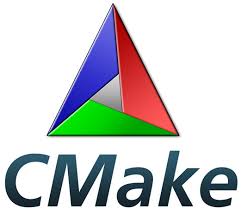How To Install CMake on Fedora 39

In this tutorial, we will show you how to install CMake on Fedora 39. CMake serves as the backbone for managing the build process, offering flexibility and extensibility, enabling developers to generate native build environments. Its role is pivotal in various software projects, making its installation a crucial step for developers and system administrators.
This article assumes you have at least basic knowledge of Linux, know how to use the shell, and most importantly, you host your site on your own VPS. The installation is quite simple and assumes you are running in the root account, if not you may need to add ‘sudo‘ to the commands to get root privileges. I will show you the step-by-step installation of the CMake on a Fedora 39.
Prerequisites
Before diving into the installation process, let’s ensure that you have everything you need:
- A server running one of the following operating systems: Fedora 39.
- It’s recommended that you use a fresh OS install to prevent any potential issues.
- SSH access to the server (or just open Terminal if you’re on a desktop).
- You’ll need an active internet connection to download CMake and its dependencies.
- A
non-root sudo useror access to theroot user. We recommend acting as anon-root sudo user, however, as you can harm your system if you’re not careful when acting as the root.
Install CMake on Fedora 39
Step 1. Before initiating the installation, it’s imperative to ensure that Fedora 39 is up-to-date. Open the terminal and execute the following commands:
sudo dnf clean all sudo dnf update
This command updates the package list and ensures the system is current, minimizing potential conflicts during the installation process. Additionally, verify if CMake is already installed:
cmake --version
This checks for an existing CMake installation. If the system returns a version number, CMake is already installed, and you can skip the installation process.
Step 2. Installing CMake on Fedora 39.
- Using Package Manager (
dnf) and Repository
The most straightforward approach to install CMake on Fedora 39 is through the package manager. In the terminal, execute the following commands:
sudo dnf install cmake
This command will download and install CMake from the official Fedora repositories. Confirm the installation by checking the version:
cmake --version
- Manual Installation of CMake from Source (Optional)
For advanced users or specific requirements, manual installation from the source provides more control over the installation process:
wget https://github.com/Kitware/CMake/releases/download/v3.27.7/cmake-3.27.7.tar.gz
Compile and Install CMake:
tar -xzvf cmake-3.27.7.tar.gz cd cmake-3.27.7 ./bootstrap make sudo make install
These commands decompress the source, configure the build, compile the source, and install CMake.
Post-installation, ensure CMake is successfully installed by checking its version:
cmake --version
Step 3. Troubleshooting.
While the installation process is usually straightforward, you might encounter issues. Here are some common problems and their solutions:
- Permission Denied: If you face permission issues while installing CMake, use
sudoas shown in the installation steps. - Package Not Found: If the package is not found, double-check that your system is up-to-date and that you have the correct repository enabled in your Fedora configuration.
-
Source Compilation Errors: When building from a source, you might encounter compilation errors due to missing dependencies. Ensure you have the necessary development tools and libraries installed.
Congratulations! You have successfully installed CMake. Thanks for using this tutorial for installing the CMake on your Fedora 39 system. For additional Apache or useful information, we recommend you check the official CMake website.